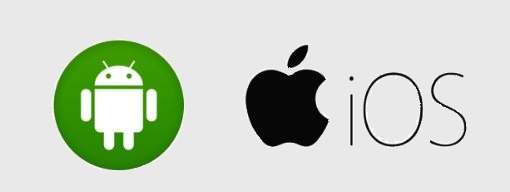Industry Talk
Regular Industry Development Updates, Opinions and Talking Points relating to Manufacturing, the Supply Chain and Logistics.Android vs. iOS – which Suits an Organization Better?

So, you wish to develop an app for your business? But you can’t decide which platform would resolve your problems? Don’t worry! Today, in this article, we are going to clear the dilemma of Android v/s iOS by focusing on each aspect of the app development.
With Android and iOS owning 97% of the global market share, app development has become the ideal approach for companies to promote their services. Every business has different requirements, so there is no single development platform that suits everything. To make the best decision, we had to dig deep into the details of both platforms.

1. Development Tools
There are many app development tools available in the market. Android has its open development platform that supports many third-party applications. The add-ons help the developers in trying out new features and some cool functionality to the software.
Apple, too, has a development platform along with a limited tool-kit, but developers can’t have access to any external tool. This makes it harder for them to experiment with new things.
2. Multitasking
Apple’s development platform is stable with specific tools, while the Android OS is quite versatile and enables dynamic app development for all the purposes and even for multitasking. Multitasking is beneficial but could prove to be problematic for novice developers who are not very familiar with the concept.
3. Audience and Demographics
Demographics tell us a lot about iOS and Android users. As per a survey, Android iOS are typically used in developing nations, but iOS is mostly used in developed nations. As per Sensor Tower Reports, the play store pulled around 75.7 first time app installs in 2018 while the Apple play store had 29.6 billion only.
- Android witness more popularity in the low-income areas whereas the major audience of iOS is from Western Europe and North America
- Android may have higher downloads, but iOS witnesses more engagement rates.
- Adults lyings in the 18-30 age group with better education and higher incomes are usually iPhone users.
- As per research, 37% of Android users and 80% of iPhone users hold graduate degrees.
Understanding your audience, their demographics would help in determining the development requirements.
4. Revenue
Obviously, you are not making an application to gain popularity. Revenue numbers do play a significant role, as well. Android does have a bigger market share in terms of app downloads, but when the point of revenue comes, the picture is reversed.
- In 2017, worldwide gross app revenue for google play was 19.5 billion dollars, while for the App Store, the number hit 38.7 billion dollars.
- The graph was no different in 2018 with the app store at 46.6 billion dollars and google play at 24.8 billion dollars.
By looking at these figures, we can conclude that for app monetization, Apple is a better platform as the iPhone users are likely to pay more than their Android counterparts.
5. App Publishing
Publishing an app on the Play store is an easy, less time consuming and affordable process. Once it is approved, It takes a couple of hours for the app to go live. Also, updating an Android app is quite easy and doesn’t demand any validation.
On the other hand, the Apple store will test your software for every possible bug. It takes a long time to validate and even costs high for publishing an app on the Apple store. Hence, if the time for app launch and money are your constraints, opting for iOS development should be your go-to solution.
6. Development Complexity
The complexity of app development is another major factor in determining the platform for app development. However, when we are referring to development complexity, Android loses the battle. This is due to the vast difference between device fragmentation and programming languages.
Developing an iOS application is a quick process. In fact, the process of updating is also very simple with the Apple platform. Post-launch of iOS 11, 50% of users updated their OS to the latest version within three months, and this number kept on rising. When the pointer comes to Android, it is quite complicated. There are numerous tablets and smartphones with different screen sizes and aspect ratios. This means that one has to develop an application suiting all these devices, which is a messy process.
7. Development Timeline
Because of high fragmentation and a large variety of devices, Android app development is more time consuming as compared to the development of iOS apps. According to the Clutch agency survey, it usually takes 30-40% more time for developing an app on Android than iOS. It is because of the fragmentation and long release cycles.
Android apps are developed using Kotlin or Java programming. In contrast, the iOS ones are developed on Swift or Objective- C. Developers have to do less work with the latter, which becomes a significant factor in determining the platform. Companies wishing to save resources and time usually hire iOS developers for promoting their business and earning profits.
8. Cost of Development
The cost of app development depends upon various things- the number of targeted devices, complexity and scope of project, development platform, and much more. If the project is large and complex, then it would account for a higher budget. The number of versions an app requires also plays a significant role in determining numbers. App development will cost more if it has many versions. Also, Android supports a lot of platforms and devices, which accounts for a high budget.
The Verdict
Many companies use in-house teams for app development, some outsource other software service providers for cutting-down the budget. A lot many factors contribute to selecting the development platform, as mentioned in the read. The ultimate decision depends on the business type, features complexity, timeline, market audience, technology, and much more.
If your target audience lies in the high-income bar, then you can opt for iOS. If a wide number of users is your goal, then Andriod could be an option. Overall, the final decision has many contributing elements that every organization must consider before investing their hard-earned money.










